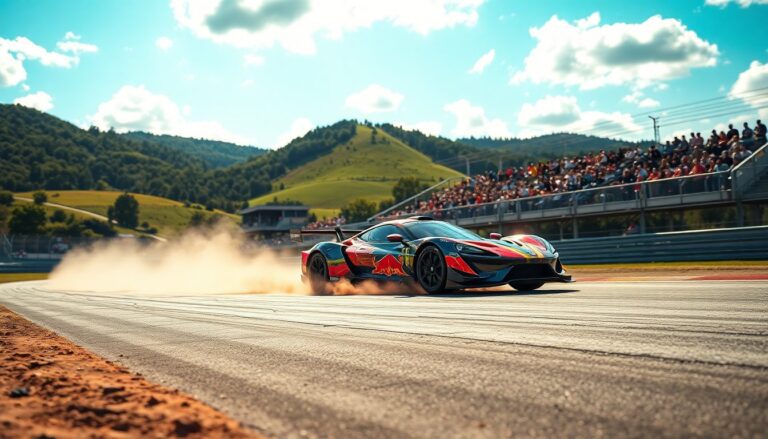Argomenti trattati
Motor sport has captivated audiences around the world for over a century, evolving from a simple pastime into a multi-billion dollar industry. It encompasses a wide array of disciplines, including Formula One, rallying, and touring car racing, each with its own unique set of rules and fanbase. The journey of motor sport is not just about speed and competition; it is a narrative that intertwines technology, culture, and human ingenuity.
The historical roots of motor sport
The origins of motor sport can be traced back to the late 19th century when the first automobile races were held. The Paris-Rouen race in 1894 is often considered the first organized motor race, setting the stage for a new form of entertainment. These early races primarily involved steam-powered vehicles and later, gasoline engines, showcasing the technological advancements of the time.
As the 20th century neared, motor sport began to gain significant popularity, especially in Europe. Events such as the Grand Prix races captivated public interest. Manufacturers recognized the opportunity to showcase their engineering capabilities through racing. The Tour de France Automobile, first held in 1899, introduced an exciting competitive atmosphere, further embedding motor sport into the cultural identity of society.
The technological revolution in racing
Over the decades, technology has been crucial in transforming the motor sport landscape. The advent of aerodynamics in the 1960s changed car design dramatically, enabling the creation of faster and more efficient vehicles. Engineers focused on enhancing downforce and reducing drag, which led to remarkable performance gains on the racetrack.
Safety innovations
The evolution of motor sport has paralleled a growing emphasis on safety. The tragic accidents of the 1960s and 1970s led to a crucial reassessment of safety standards. Innovations such as the HANS device (Head and Neck Support) and the implementation of crumple zones have markedly decreased the risk of injury for drivers. These advancements not only safeguard the athletes but also bolster confidence among fans and stakeholders.
Data analytics in modern racing
In recent years, the emergence of data analytics has revolutionized racing strategies. Engineers now harness real-time data to make immediate decisions during races. The integration of telemetry systems enables teams to monitor vehicle performance and driver behavior, fine-tuning strategies for each event. This data-driven methodology has heightened competition, as teams seek even the smallest edge over their rivals.
Motor sport as a cultural phenomenon
Motor sport extends far beyond the confines of the racetrack, emerging as a vital component of global culture. Iconic events such as the Monaco Grand Prix and the Le Mans 24 Hours draw millions of viewers, highlighting a captivating fusion of speed, technology, and glamour. The advent of social media has intensified this cultural phenomenon, offering fans unprecedented access to their favorite teams and drivers.
This dynamic landscape has influenced various aspects of life, including fashion and music, with renowned brands aligning themselves with racing culture. The collaborations between race teams and sponsors have crafted a distinctive marketing environment, enabling brands to engage with passionate audiences through thrilling high-speed events.
Environmental considerations
The growing global awareness of environmental issues is prompting changes within motor sport. Initiatives aimed at developing sustainable racing technologies are gaining traction, with series such as Formula E at the forefront of promoting electric vehicle racing. These efforts strive to minimize the sport’s carbon footprint while simultaneously driving innovation in consumer automotive technology.
The future of motor sport
As we look to the future, motor sport appears set for significant transformation. The integration of artificial intelligence and automation introduces the possibility of autonomous racing vehicles, raising fundamental questions about the nature of competition itself. While some traditionalists may resist these advancements, adopting new technologies could engage a younger audience eager for innovation.
The evolution of motor sport reflects humanity’s relentless pursuit of speed, innovation, and excellence. This dynamic field continues to grow and adapt, ensuring it remains a captivating spectacle for enthusiasts. With each advancement, motor sport not only entertains but also inspires a new generation of fans and competitors alike.

